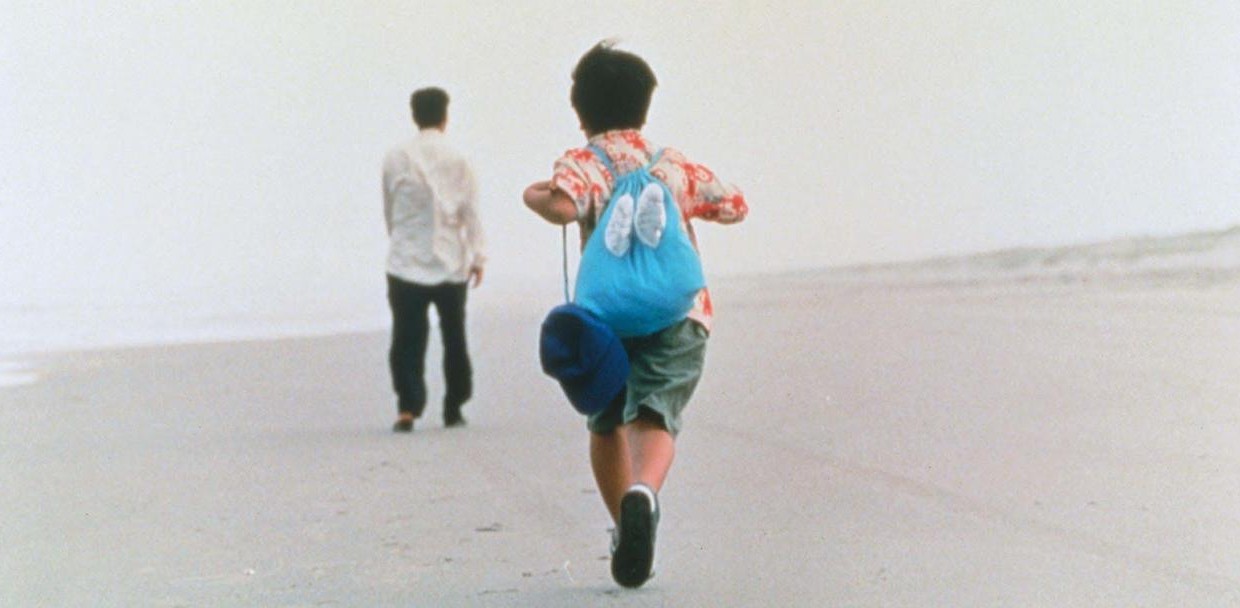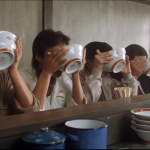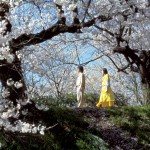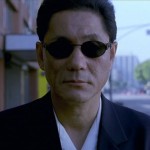By Alana Jefferey
Directed by Takeshi Kitano
We’ve all seen it before – the tale of the unlikely friendship between young and old, who journey together, growing to love and learn from one another. But just because the tale is as old as time, doesn’t mean it’s not worth telling. Kikujiro is a bright and fun film that was shown at both the Cannes and Toronto film festivals in 1999 and was an unexpected turn for director Takeshi Kitano, who is primarily known for his Yakuza (gangster) films. With Kikujiro, Kitano produces a light-hearted, feel-good film that is bound to make anyone smile.
It tells the story of a broken and lonely young boy (Yusuku Sekiguchi) who finds himself with nothing to do, and no one to see, during his summer holidays. Having lost his father, and having never met his mother, Masao lives with his grandmother and is a withdrawn and introverted child. When his only friend heads for the beach and Masao is left with a looming summer of loneliness, he decides to begin a journey to find his estranged mother. But, as fate would have it, he runs into his neighbour during his great escape and she appoints a cynical and harsh man to be his protector throughout the adventure – Kikujiro.
When Kikujiro, known only as ‘mister’ over the course of the film, takes Masao to a gambling shop as their first port of call, their adventure takes an interesting turn that will lead them all across the Japanese countryside. With no money and no food, the two attempt to hitchhike and con their way to Masao’s mother, stumbling across a variety of characters along the way, including two gentle bikers, a wandering poet, and a guy who can dance the robot.
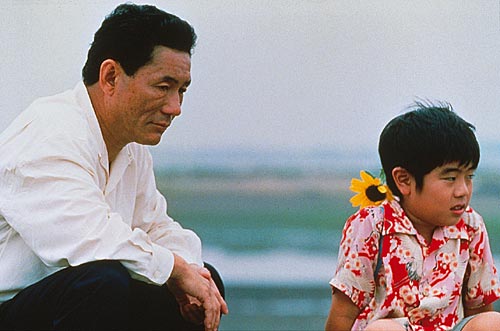
The film unfolds slowly leaving us wondering if this road will ever find its destination, and it flits from funny to sad to downright disturbing, all while maintaining a light-hearted atmosphere. It is true that some of the scenes are uncomfortable, and a lot of the movie leaves us with pressing questions – namely why no one seems to care that an introverted boy as young as 10 has embarked on an adventure across Japan with a man he has never met. Nevertheless, once we accept that this is a film that rarely answers the questions it poses, its appeal and charm become all the more apparent.
It would be easy to assume that this charm falls prey to the classic characteristics of the story it is a part of. But in fact, it is the lack of typical clichés that is so refreshing. The characters barely look at each other, they don’t openly speak of their care for one another, and they don’t hug and create a secret handshake at the end of the film. They simply say goodbye, exchange names and leave with a smile. While some have disregarded this as a flaw, or an emptiness in the relationship, it is exactly what makes the film so enjoyable. When all is said and done, we aren’t left with two loving and transformed protagonists. We are left with the same ones, broken and awkward though they may be, but with a little extra smile in their lives.
It wouldn’t be fair to write of Kikujiro and not mention the remarkable score written by Joe Hisashi. The soundtrack includes one of his most famous pieces, “Summer”, and adds a sense of innocence and pace to the story. It is the ever present score that reminds us of the light-hearted nature of the film when the narrative seems as though it could veer into troubling waters. It is clear that the film would not be quite what it is without the contribution of Hisaishi.
Kikujiro is a simple and compelling film. The story Kitano tells is not groundbreaking, and the characters are not complex, but it is a charming version of a timeless tale that will warm the most unlikely of hearts.
Watch Kikujiro on FilmDoo.com. (UK & Ireland only)
FilmDoo Also Recommends:

